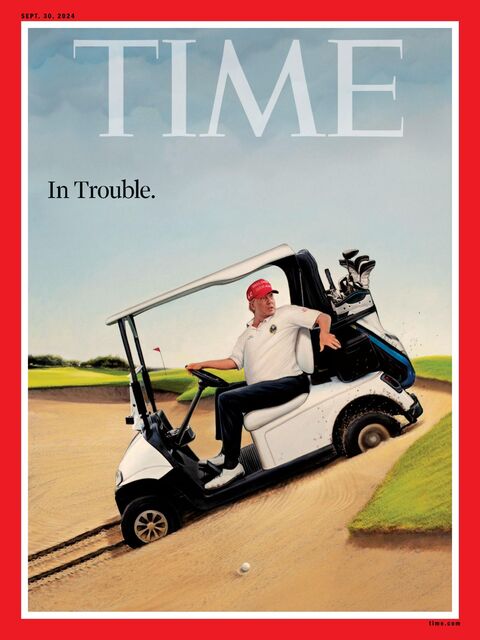
Guerrilla Girls Announce Support for Kamala Harris with Bold New Poster

The Guerrilla Girls’ Continued Fight for Democracy and Feminism
Since their emergence in 1985, the *Guerrilla Girls,* an anonymous collective of feminist artist-activists, have consistently leveraged art to challenge discrimination, sexism, and myriad forms of injustice. Known for donning gorilla masks and pseudonyms of famous women artists, the group’s work emphasizes the need for gender and racial equity. Today, even decades after their formation, their impact is as potent as ever — and now, they’re turning their attention to upcoming elections.
**An Enduring Legacy: Art as a Tool for Activism**
The Guerrilla Girls first gained prominence in the mid-1980s through posters wheat-pasted across Manhattan, taking aim at art world institutions for their lack of gender and racial inclusivity. One of their most iconic works, *“Do Women Have to Be Naked to Get Into the Met Museum?”* (1989), posed a provocative question about the underrepresentation of women artists in major museum collections. The advertisement humorously, yet pointedly, highlighted that while women were frequently depicted as nude subjects in art, their contributions as artists were startlingly overlooked. The poster revealed a harsh truth: in that era, less than 5% of the artists in the Met were women, while 85% of the nudes on display were female.
Fast forward to today, and while some progress has been made, the Guerrilla Girls’ activism remains as relevant as ever. They’ve continuously expanded their advocacy from the art sphere to broader societal issues, addressing topics such as institutional racism, environmental concerns, and anti-war movements. Notably, they’ve taken on both liberal and conservative political figures, ensuring their voice remains centered around a commitment to justice and equality.
**A New Political Statement: Harris-Walz in 2024**
With the emergence of the 2024 elections, the Guerrilla Girls are back with another timely political poster. Released on October 10, the collective is urging voters to cast their ballots in favor of Democratic vice presidential candidate Kamala Harris and Minnesota Governor Tim Walz. The new artwork builds on their mission of reaching beyond the art world to affect political change, tying together their consistent themes of feminism, justice, and democracy. The poster boldly claims, *“It’s Not Apple Pie Without Ice Cream! It’s Not Democracy Without Feminism!”* If the message wasn’t clear enough, the illustration of a pie box with the words *“Feminism = Democracy, Equality & Justice for ALL”* leaves little room for ambiguity.
The Guerrilla Girls have been outspoken in their critique of conservative politics. Former President George Bush, Senator Jesse Helms, and President Donald Trump have all been targets of their scathing but artful campaigns. The 2024 election poster fits within their long history of political engagement, with the group calling for broad support to defend democratic rights, particularly those at risk from rising populism and authoritarianism. As the collective explained in a statement to *Hyperallergic*, “Vote like your freedoms depend on it, because they do!!!”
**Feminism and Democracy: Inextricably Linked**
This latest effort addresses a fundamental belief of the Guerrilla Girls: the idea that true democracy cannot exist without feminism. In their view, feminism is not just about advocating for women’s rights but also about ensuring justice and equality for all marginalized communities. “Feminism = Democracy” is more than just a catchy slogan; it’s a deeply held conviction that equality transcends gender and applies to various axes of discrimination, be it race, class, or sexual orientation.
The Guerrilla Girls’ message also emphasizes that democracy is not a static achievement but a continual struggle that requires active participation. Their posters call for widespread engagement from voters during a climate where reproductive rights, minority protections, and democratic values are perceived to be at risk.
**Partnerships with Artists for a Bigger Cause**
The Guerrilla Girls aren’t alone; numerous activists in the art world share their cause. One prominent example is Shepard Fairey, designer of the famed “Hope” poster for Barack Obama’s 2008 campaign, who recently released his own depiction of Kamala Harris as a symbol of progress. Fairey’s Los Angeles gallery, Subliminal Projects, is currently hosting the Guerrilla Girls’ latest work as a floor-to-ceiling wall banner, reinforcing the interconnectedness of art and political engagement. Collaborations like these show a unified front among artists to influence political discourse and advocate for change.
Fairey, who also co-chairs “Artists for Democracy,” a progressive advocacy organization, has continued his visual campaigns urging people to vote. His involvement with the Guerrilla Girls’ message highlights the broader role artists play in galvanizing action around social issues. Through their work, both Fairey and the Guerrilla Girls are mobilizing citizens at a crucial moment in history.
**Back to the Roots: A Commitment to Inclusivity through Free Art**